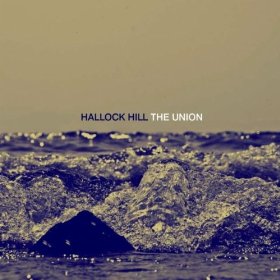According to the Hundred Acre Recordings website, Hallock Hill is the "nom de plume of Tom Lecky: an homage to the rural country where he was born in upstate New York. Tom is now a 20 year resident of New York City and its environs." Whereas groups like Public Enemy and Love incorporated sounds from the thump and blur of the city into their music, Lecky has made the conscious decision to focus on the relative peace of the countryside. Fans of Richard Skelton may immediately be drawn to a principle that could potentially involve found sound, but shouldn’t expect to be swathed in similarity. For starters, Lecky’s primary instrument is the guitar, and there hasn’t exactly been a barrel of riveting solo guitar albums released of late. If you’re thinking this album might be something coursing through the cocaine stained vein of late 80s fretboard destroyers like Joe Satriani, Steve Vai and Yngwie Malmsteem, then picture a deconstructed, introspective and experimental Al Di Meola instead; but only for the subtle Mediterranean modes and scales that Lecky occasionally riffs on.
It is perhaps Ry Cooder’s The Long Riders that serves as the best reference point for the lost gypsy blues that make up The Union, as this particular American son’s playing is similarly understated, meditative and plaintive. Deeply layered tracks come together, heading to shore, moving persistently. Tangled up in a judicious vine of reverb and intermittent delay, Lecky’s recorded acoustic guitar sounds solid – the timbre of the woods almost thick enough to chop percussively through speakers. When Lecky’s guitar is dry, it’s almost verbal; but when drenched in reverb, there is something religious contained within its generous tonality.
Attempting to place The Union alongside another guitar album seems facile, as there simply seems to be little of its like in existence. Occasionally, when Lecky bends a note just a half step (as he does on the rolling ‘Ausable’ – most likely named after Au Sable, Clinton County, New York), an image of Davy Graham flits briefly across the mind, yet Lecky’s style and delivery here is unique. Where there isn’t the rare bent note to imply emotion, arpeggios fall across each other like children playing amongst autumnal leaves and – between them – single string melodies jut out like pointed rocks: ‘The Chair’ is a prime example of this.
It doesn’t stop there. There is the 10 minutes of ‘Pencil Spin’ to get lost in: a piece that has the warmth of early, experimental Eno as heavily effected electric guitars are beset by stabbing, distorted shards of fuzz that sound like Jimi Hendrix stepping on one of Pan Sonic’s pedals by accident. It’s a gripping piece – again, one in perpetual motion which furthers the implication that The Union is ultimately about the evolution of Tom Lecky, the man, amongst Hallock Hill, the surroundings.
The album’s artwork is a picture of waves at Lake Champlain. In recent documentary, The Secret Life Of Waves, David Malone compared the life of a wave to the life of man and found that – in terms of energy – they are not altogether dissimilar. Curiously, it does take a couple of tracks for the album to really motor into life – much like a wave starts from a ripple. ‘On Sundays when I wake up’ closes The Union and is the sound of a man content with his world. Though there is a little chordal work to add density, the piece is mostly memorable for its tumbling series of pull-offs and the digitally reversed licks that Lecky employs on opener, ‘I Began To Lose Myself Within A Wonder’ which brings a cyclical feel to the work.
There is something wondrous about this implacable and partly untraceable album. That’s primarily because The Union is rooted in history and biography – permanent treasures of emotion, memory and reflection. Undoubtedly, this isn’t the last word from Hallock Hill, and it will be interesting to see what areas will be explored next as, geographically, Hallock Hill has its boundaries.


